Korea's system of online government services has earned the top ranking in this year's United Nations e-Government Survey. The biannual survey has now given Korea the top spot in 2010, 2012 and 2014.
The U.N. body announced on June 23 that Korea ranked first in both the e-Government Development Index, which gauges how advanced online government services are, and the e-Participation Index, which evaluates the level of citizens' online engagement with their government. The U.N. survey has been carried out since 2003 among 190 countries in order to enhance global cooperation between online government services and to improve national competitiveness.
For this year's survey, the U.N. stressed the value of open government data. Korea was recognized for its "Government 3.0" policies, a range of efforts aimed at sharing data, openness, communication and cooperation.
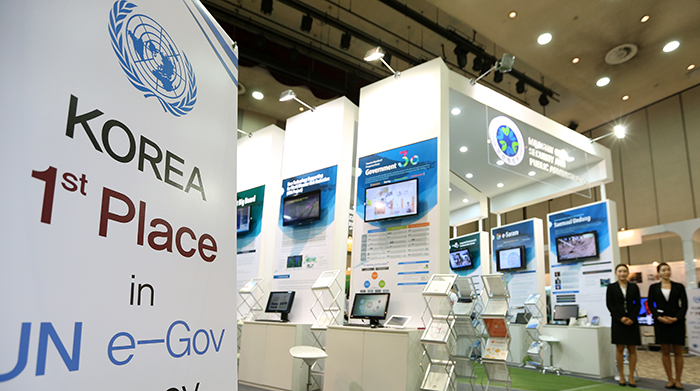
Korea provides its citizens with integrated public services online, through which people can register personal information, such as dates of birth and death, employment status and address changes, all necessary for any type of civil service. People do not need to pay a visit to each of the relevant organizations. In addition to such online services, the Korean government has also made an effort to expand communication with the public via mobile devices by offering government services aimed at both daily life and for emergencies.
From June 23 to 27, the 2014 U.N. Public Service Forum was held with 1,861 attendees from 126 countries at the KINTEX convention center in Goyang. Conversation ranged widely in the "Innovating Governance for Sustainable Development and Well-being of the People" discussion session.
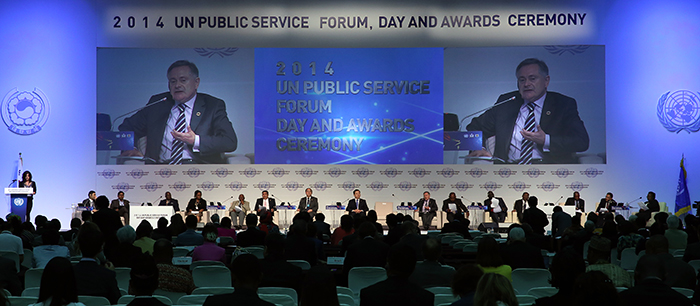
Participants in the public service session agreed that we are in need of innovation in public services in order to improve the quality of life of the people, wherever they are. During the e-government session, attendees agreed that innovation in e-government would improve the efficiency and transparency of government. For this, technological advances and the active participation of citizens must come first. Also, in a modern society, an e-government should focus more on creating value instead of looking at simply reducing expenses.
The four-day forum wrapped up with the adoption of the Seoul Joint Communiqué.
It stated that, "The innovation plan should center around citizens. They should be allowed to participate in the whole process of designing, developing policies and providing services.
"Civil participation can be a useful tool to improve regional development from both the functional aspect and democratic aspect. Korea's incredible development experience, as showcased through the Saemaul Undong, or New Community Movement, a program in which people participated spontaneously, is worth sharing and studying in other countries."
By Wi Tack-whan, Lee Seung-ah
Korea.net Staff Writers
whan23@korea.kr
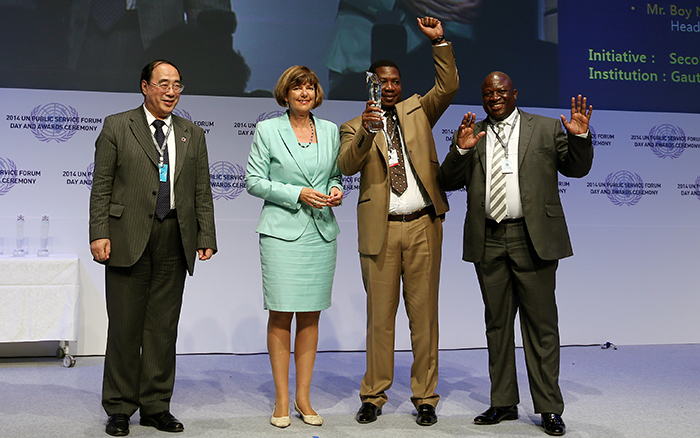
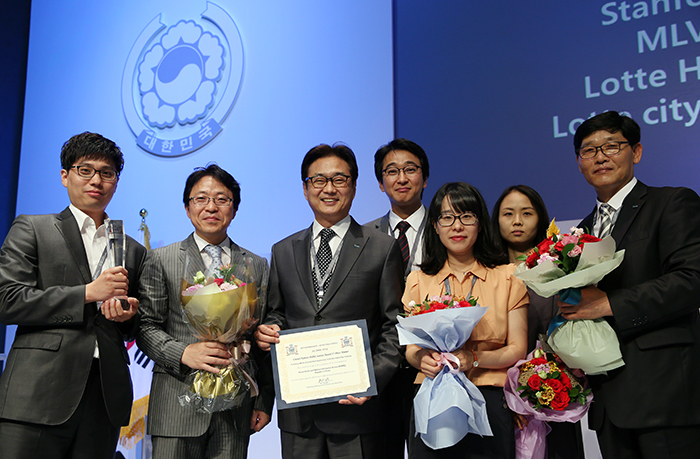
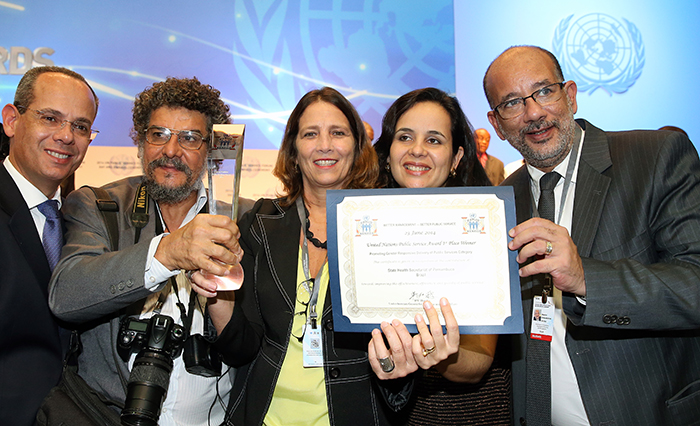
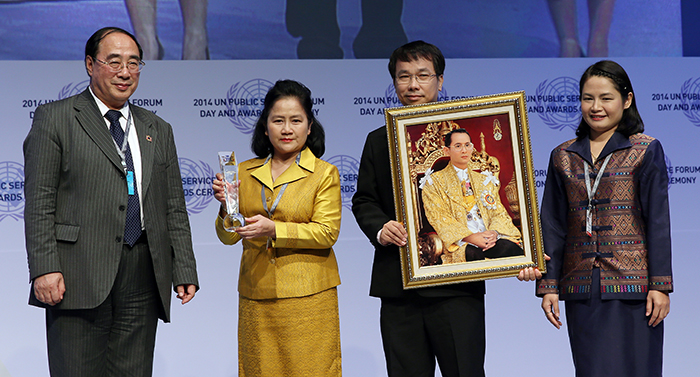
The U.N. body announced on June 23 that Korea ranked first in both the e-Government Development Index, which gauges how advanced online government services are, and the e-Participation Index, which evaluates the level of citizens' online engagement with their government. The U.N. survey has been carried out since 2003 among 190 countries in order to enhance global cooperation between online government services and to improve national competitiveness.
For this year's survey, the U.N. stressed the value of open government data. Korea was recognized for its "Government 3.0" policies, a range of efforts aimed at sharing data, openness, communication and cooperation.

The Korea booth outlines the government's online services at the 2014 U.N. Public Service Forum. It celebrates Korea being ranked in first place in the United Nations e-Government Survey (photo: Jeon Han)
Korea provides its citizens with integrated public services online, through which people can register personal information, such as dates of birth and death, employment status and address changes, all necessary for any type of civil service. People do not need to pay a visit to each of the relevant organizations. In addition to such online services, the Korean government has also made an effort to expand communication with the public via mobile devices by offering government services aimed at both daily life and for emergencies.
From June 23 to 27, the 2014 U.N. Public Service Forum was held with 1,861 attendees from 126 countries at the KINTEX convention center in Goyang. Conversation ranged widely in the "Innovating Governance for Sustainable Development and Well-being of the People" discussion session.

The 2014 U.N. Public Service Forum begins on June 23 and continues for four days. (photo: Jeon Han)
Participants in the public service session agreed that we are in need of innovation in public services in order to improve the quality of life of the people, wherever they are. During the e-government session, attendees agreed that innovation in e-government would improve the efficiency and transparency of government. For this, technological advances and the active participation of citizens must come first. Also, in a modern society, an e-government should focus more on creating value instead of looking at simply reducing expenses.
The four-day forum wrapped up with the adoption of the Seoul Joint Communiqué.
It stated that, "The innovation plan should center around citizens. They should be allowed to participate in the whole process of designing, developing policies and providing services.
"Civil participation can be a useful tool to improve regional development from both the functional aspect and democratic aspect. Korea's incredible development experience, as showcased through the Saemaul Undong, or New Community Movement, a program in which people participated spontaneously, is worth sharing and studying in other countries."
By Wi Tack-whan, Lee Seung-ah
Korea.net Staff Writers
whan23@korea.kr




Representatives from South Africa, Korea, Brazil and Thailand smile as they receive their award at the 2014 U.N. Public Service Forum. (photos: Jeon Han)
